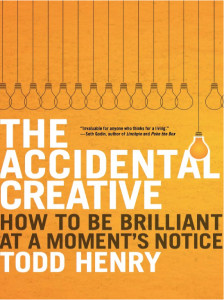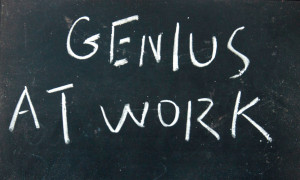3 Project Management Tips That Will Make You a Better, More Prolific Writer
 Do you have too many research and writing projects going on? Are you tired of trying to manage these projects with calendar and to-do apps that leave their promises of an easier, more organized life unfulfilled?
Do you have too many research and writing projects going on? Are you tired of trying to manage these projects with calendar and to-do apps that leave their promises of an easier, more organized life unfulfilled?
I used to feel the same way. I had too many projects and not enough time for the project I most wanted to work on most: my book proposal. Or so I thought.
My search for solutions led me to Todd Henry’s book [amazon_link id="1591846242" target="_blank" container="" container_class="" ]The Accidental Creative: How to be Brilliant at a Moment’s Notice[/amazon_link]. The book promises to “help you establish enough structure in your life to get the most out of your creative process…to stay engaged and prolific over the long term.”
Convinced that this book would fall short on its promises, just like my calendar and to-do apps, I borrowed it from the library. However, Todd Henry proved me wrong.
The Accidental Creative lived up to Henry's billing. Using Henry’s practices, I have become an effective project manager and a better, more prolific writer.
 Synopsis: The Accidental Creative
Synopsis: The Accidental Creative
In The Accidental Creative, Todd Henry outlines the creative process. He asserts that “by building purposeful practices into your life” creatives can “stay engaged and productive over the long term” and “increase [their] capacity to do brilliant work, day after day, year after year.”
The book has 2 parts: Dynamics (Part 1) and Creative Rhythm (Part 2).
Part 1 describes who creatives are, the kinds of work they do, and why many creatives burnout.
Part 2 lays out Henry’s 6-step plan for managing creativity, which will help a creative avoid burnout.
The heart of Henry’s plan is conscious recognition. Creatives must be conscious of all of the information they take in, the time they spend consuming information, meeting with other people, and creating.
Once creatives become conscious of the information, experiences, and time they consume, they can manipulate those factors into productive creative time.
3 Project Management Tips from The Accidental Creative That Will Make You a Better, More Prolific Writer
1. Notation: Write down all of your ideas, even if they are not immediately relevant to your current project.
Henry advises readers to keep an idea notebook and to regularly review it.
Henry's 4 Tips to Optimize Idea Notebook Organization and Review Time
1. Keep the first few pages of your notebook free for the “Idea Index.” 2. Number the pages of your notebook. 3. Each time you write down an idea, flip to the index and record a brief summary of your idea and note the page number where you wrote down the full idea. 4. Take a few moments each day to scan your “Idea Index” as old ideas may help you with your current project.
2. Checkpoints: Take time each week, month, and quarter to conduct a checkpoint.
Checkpoints are written action plans or schedules that you create on a weekly, monthly, and quarterly basis.
Henry offers a specific checklist of items you should think about when you conduct each type of checkpoint in Chapter 9.
Checkpoint Basics:
- Set aside time: Weekly Checkpoints: 20-60 minutes; Monthly Checkpoints: 60-90 minutes; Quarterly Checkpoints: 4-8 hours
- Identify the projects you want to complete and the tasks, research, and meetings you need to accomplish them.
- Recognize and take into account all non-work related projects and familial, friendly, and professional obligations when you create your project schedule.
3. Pruning: It is okay to "prune" or let go of activities and commitments that "inhibit your ability to effectively perform."
Pruning doesn't mean saying "No" to every project that comes your way, but it does mean letting go of time-consuming projects that do not add to your overall professional and creative goals.
 Success
Success
Todd Henry's "Accidental Creative" practices work.
These 3 valuable techniques have helped me better organize my projects and my work.
Keeping and reviewing an idea notebook has relieved my mind of the burden of trying to remember the ideas I have for my various writing, research, and consulting projects. The notebook holds my ideas until I need them.
The practice of conducting weekly, monthly, and quarterly checkpoints has provided me with the roadmaps I need to complete my projects. Knowing exactly what projects I must complete each week ensures that I make time for them.
I have more focus because I have eliminated time-consuming projects that do not help me get to the “Freelance Historian” life I envision.
The best part: Following Henry’s advice has enabled me to be a prolific writer. As a result, I accomplished my goal: I finished my book proposal.
What Do You Think?
How do you manage your projects? What methods work, or don't work, for you?
Have you read The Accidental Creative? What practice do you find most helpful?
